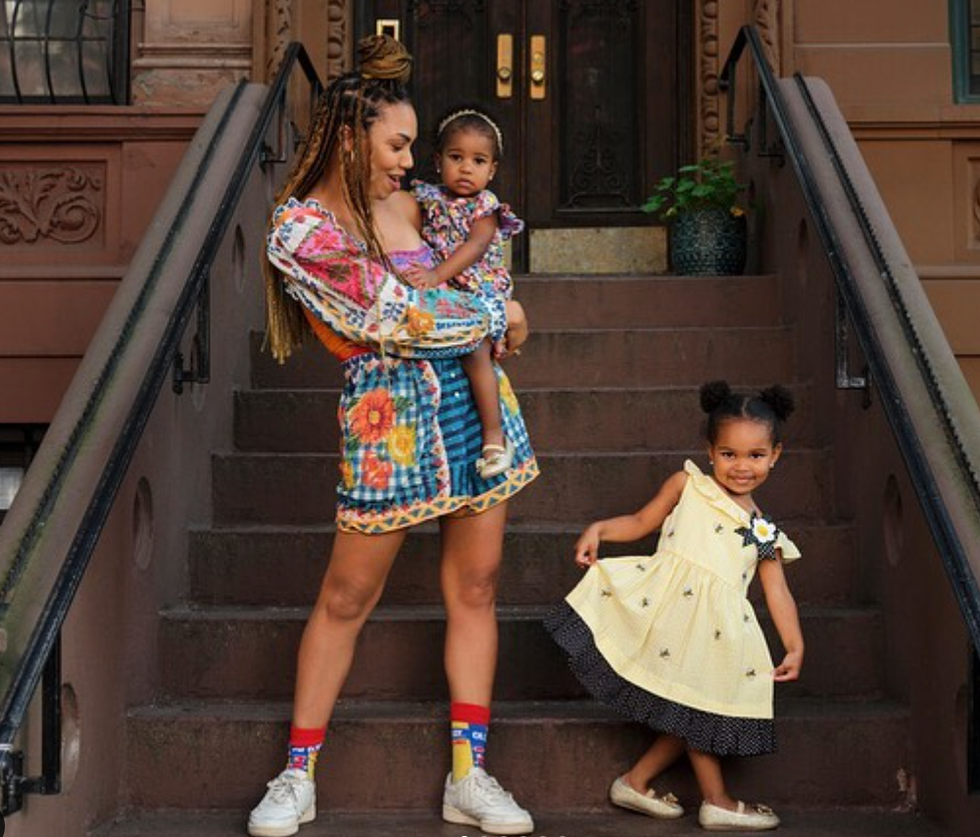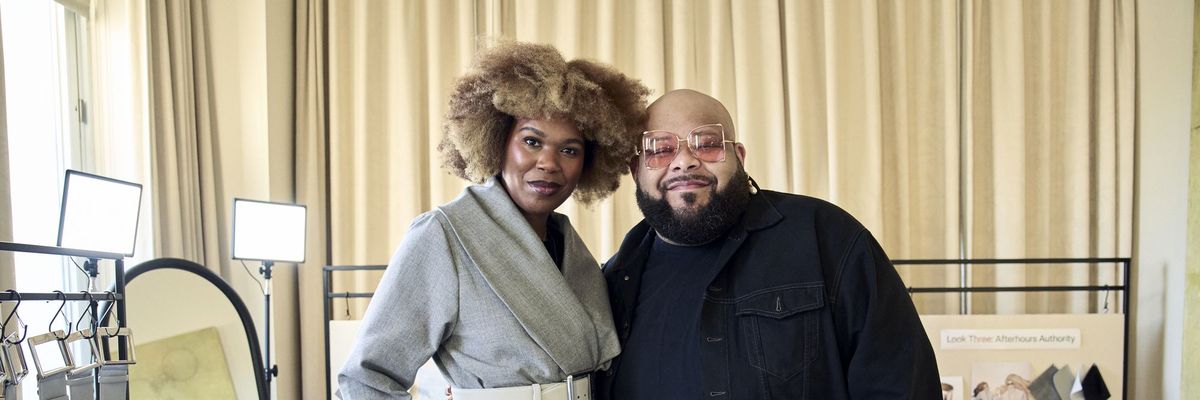
The truth is, Black moms create magic every single day. Whether we're juggling motherhood with a busy 9-5, a thriving business, or staying at home to run a household, no day is short of amazing when you're managing life as a mommy. This Mother's Day, xoNecole is giving flowers to CMOs (Chief Mom Officers) in business who exemplify the strength it takes to balance work with motherhood.
We've commissioned these ladies, who are pillars in their respective industries, for tidbits of advice to get you through the best and worst days of mothering. Here, they share their "secret sauce" and advice for other moms trying to find their rhythm.
Emmelie De La Cruz, Chief Strategist at One Day CMO

"My mom friends and I all laugh and agree: Motherhood is the ghettoest thing you will ever do. It's beautiful and hard all at the same time, but one day you will wake up and feel like 'I got this' and you will get the hang of it. After 4 months, I finally felt like I found my footing to keep my kid and myself alive, but it took vulnerability to take off the cape and be honest about the areas that I didn't have it all together. The healing (physically and emotionally) truly does happen in community - whatever and whoever that looks like for you."
Alizè V. Garcia, Director Of Social & Community Impact at Nike
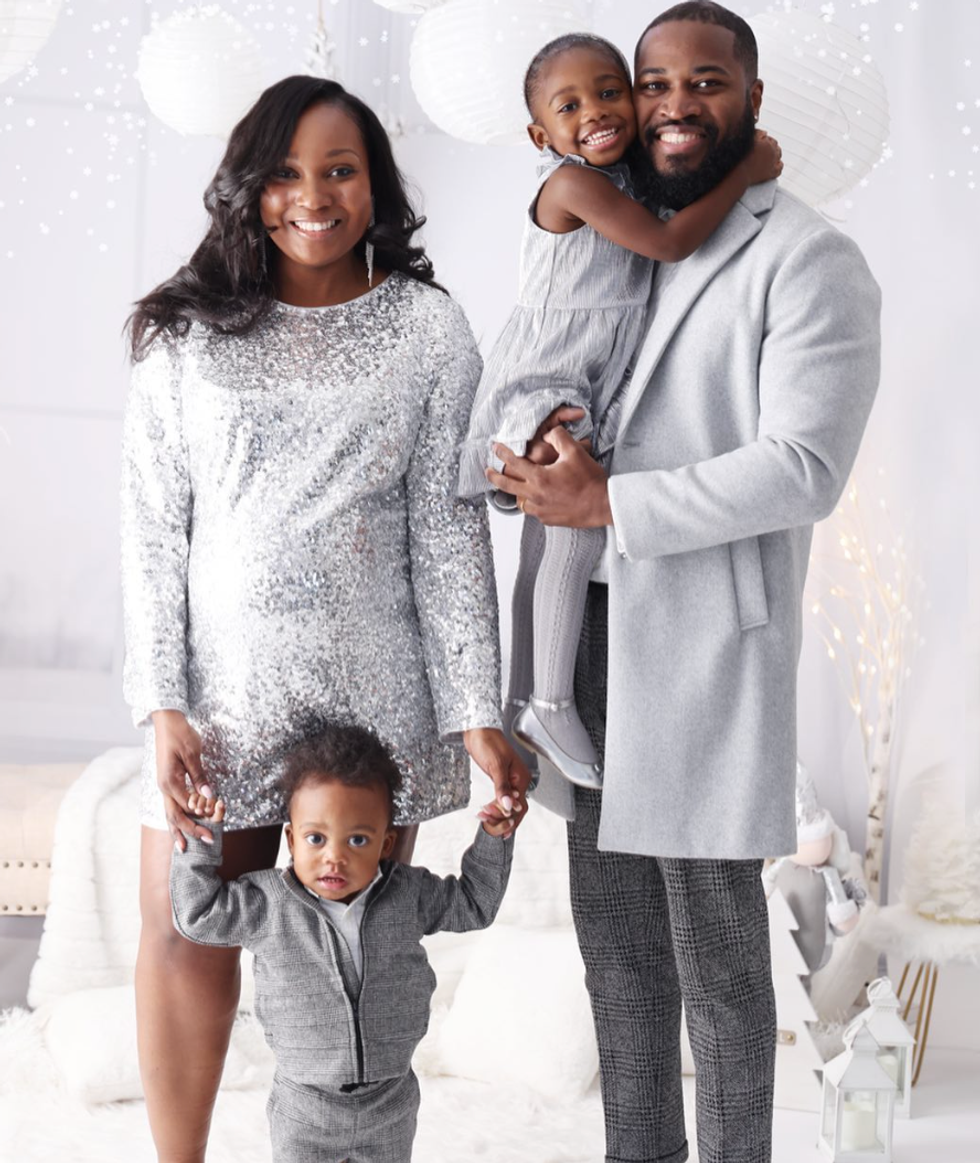
"I would tell a new mom or a prospective mother that they must give themselves grace, understand and remember there is no right way to do this thing and have fun! When I had my daughter three and a half years ago, I was petrified! I truly had no clue about what to do and how I was going to do it. But with time, my confidence grew and I realized quickly that I have all the tools I need to be the mother I want to be."
Nikki Osei-Barrett, Publicist + Co-Founder of The Momference
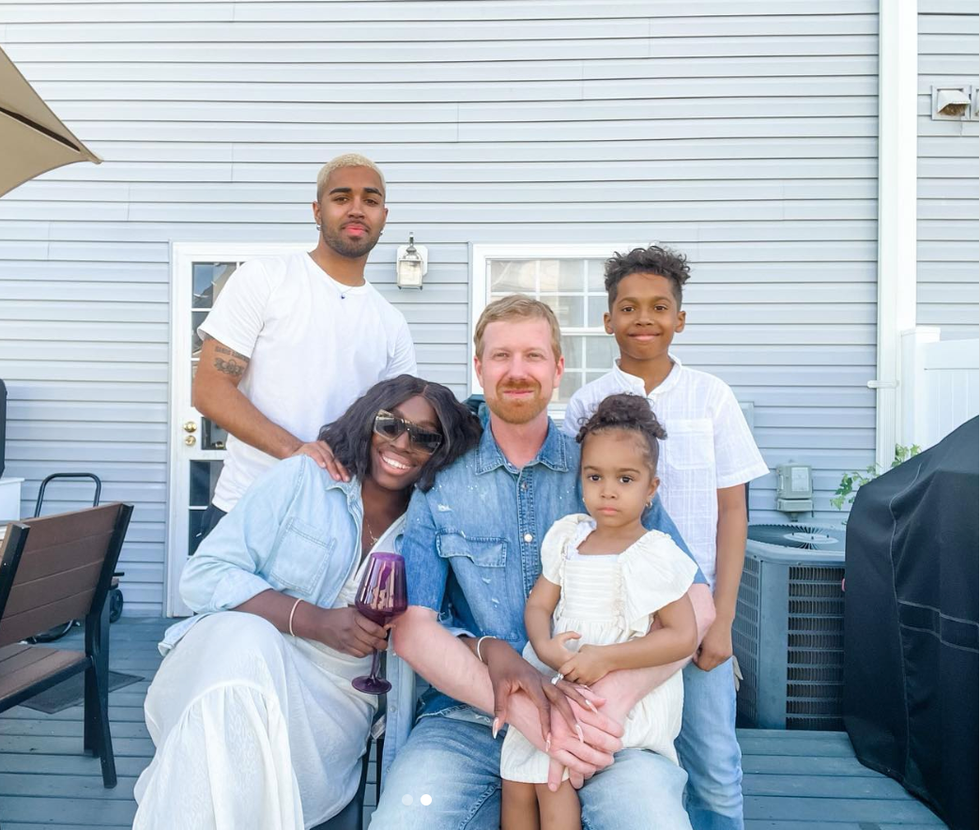
"There's no balance. I'm dropping sh*t everywhere! However, my secret sauce is pursuing interests and hobbies outside of what's required of me and finding time to workout. Stronger body equals = stronger mind."
Lauren Grove, Chief Experience Architect, The Grant Access, LLC
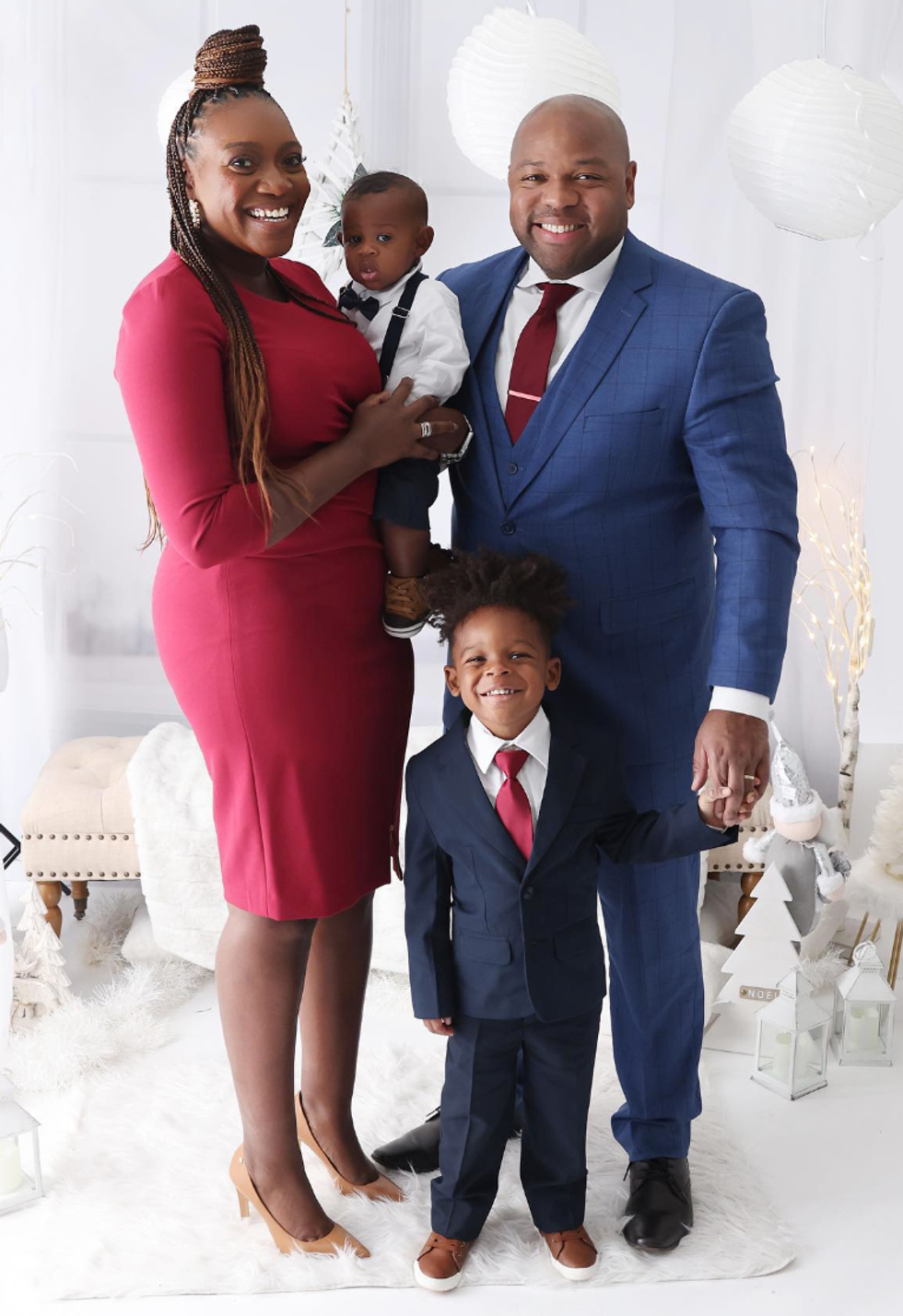
"I try to give myself grace. That’s my mantra for this phase of motherhood…grace. I won’t be able to get everything done. To have a spotless house. To not lose my cool after an exhausting day. Those things can’t happen all of the time. But I can take a deep breath and know tomorrow is another day and my blessings are more plentiful than my pitfalls."
Rachel Nicks, Founder & CEO of Birth Queen

"You have the answers within you. Don’t compare yourself to others. Curate your life to work for you. Ask for help."
Tanisha Colon-Bibb, Founder + CEO Rebelle Agency + Rebelle Management

"I know love doesn't pay bills but when I am overwhelmed with work or client demands I take a moment to play with my baby and be reminded of the love, energy, science, and Godliness that went into his birth. I am brightened by his smile and laugh. I remember I am someone's parent and not just a work horse. That at the end of the day everything will work out for the good of my sanity and the love within my life."
Christina Brown, Founder of LoveBrownSugar & BabyBrownSugar
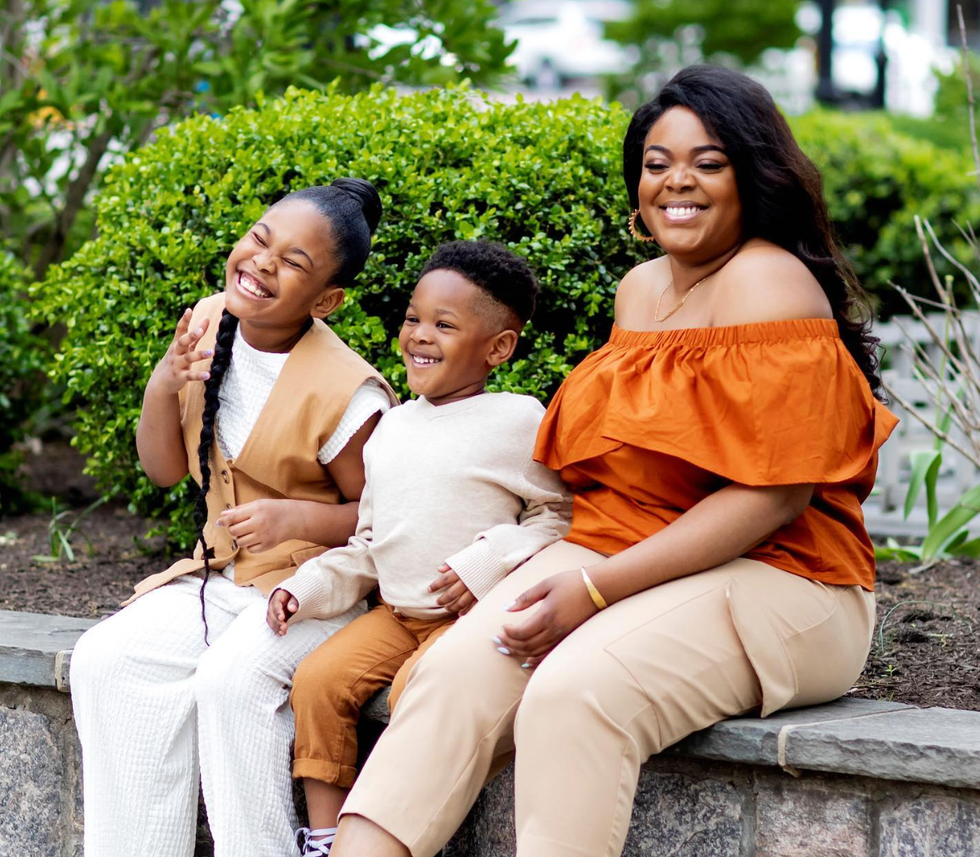
"Learning your rhythm as a mom takes time and can be uncomfortable when you’re in a season of overwhelm. Constantly check in with yourself and assess what’s working and what’s not. Get the help you need without feeling guilty or ashamed of needing it."
Mecca Tartt, Executive Director of Startup Runway Foundation
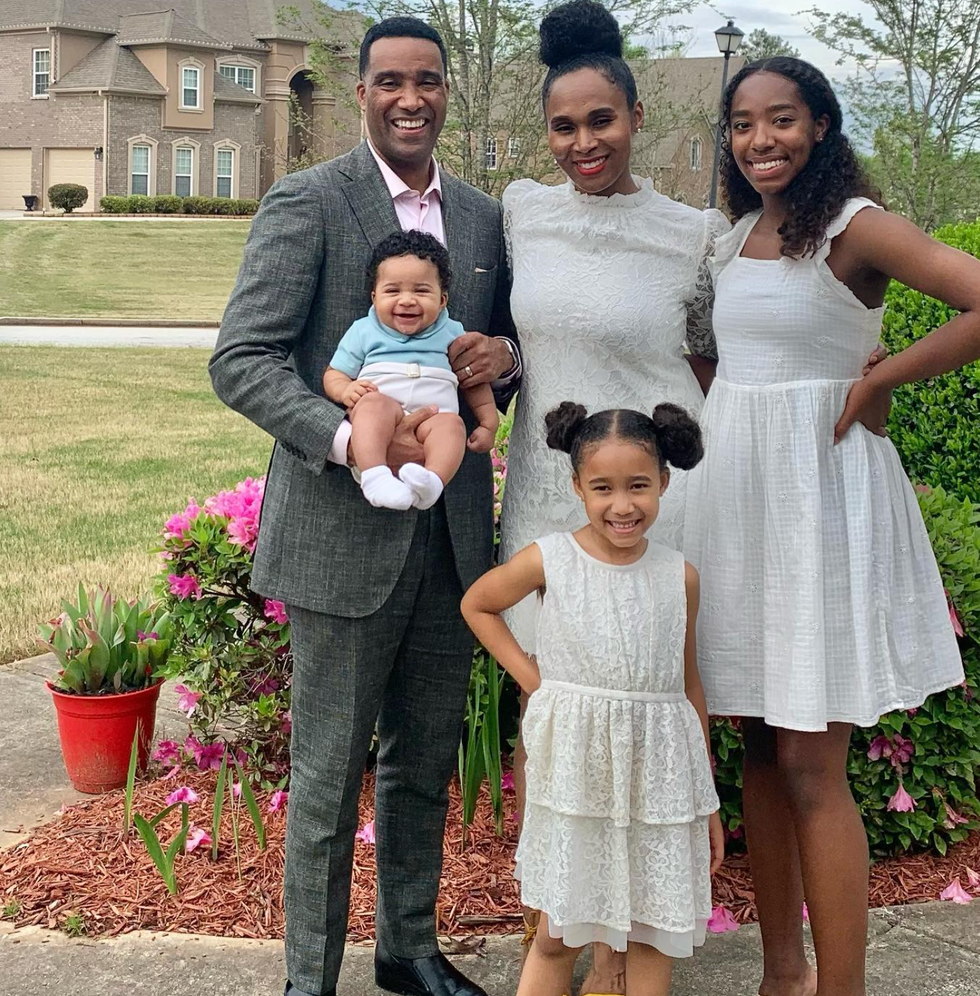
"I want to be the best for myself, my husband, children and company. However, the reality is you can have it all but not at the same time. My secret sauce is outsourcing and realizing that it’s okay to have help in order for me to perform at the highest level."
Jen Hayes Lee, Head Of Marketing at The Bump (The Knot Worldwide)
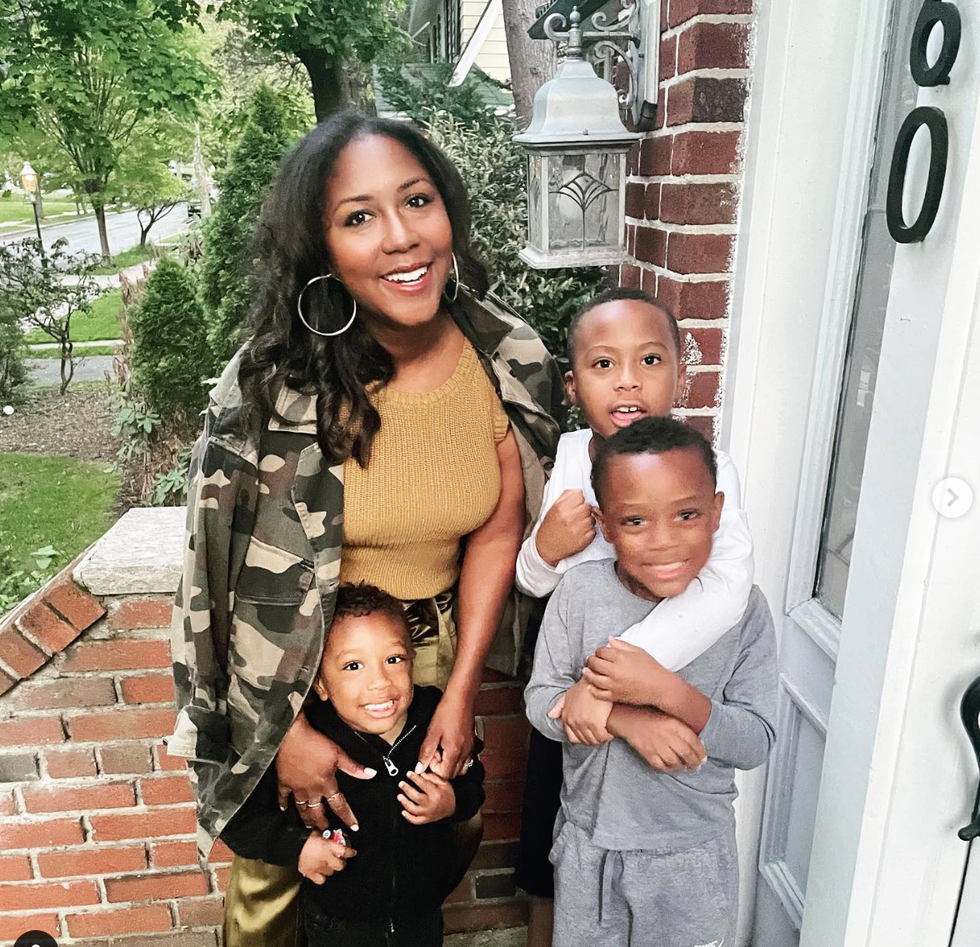
"My secret sauce is being direct and honest with everyone around me about what I need to be successful in all of my various "jobs". Setting boundaries is one thing, but if you're the only one who knows they exist, your partners at home and on the job can't help you maintain them. I also talk to my kids like adults and let them know why mommy needs to go to this conference or get this massage...they need to build an appreciation for my needs too!"
Whitney Gayle-Benta, Chief Music Officer JKBX
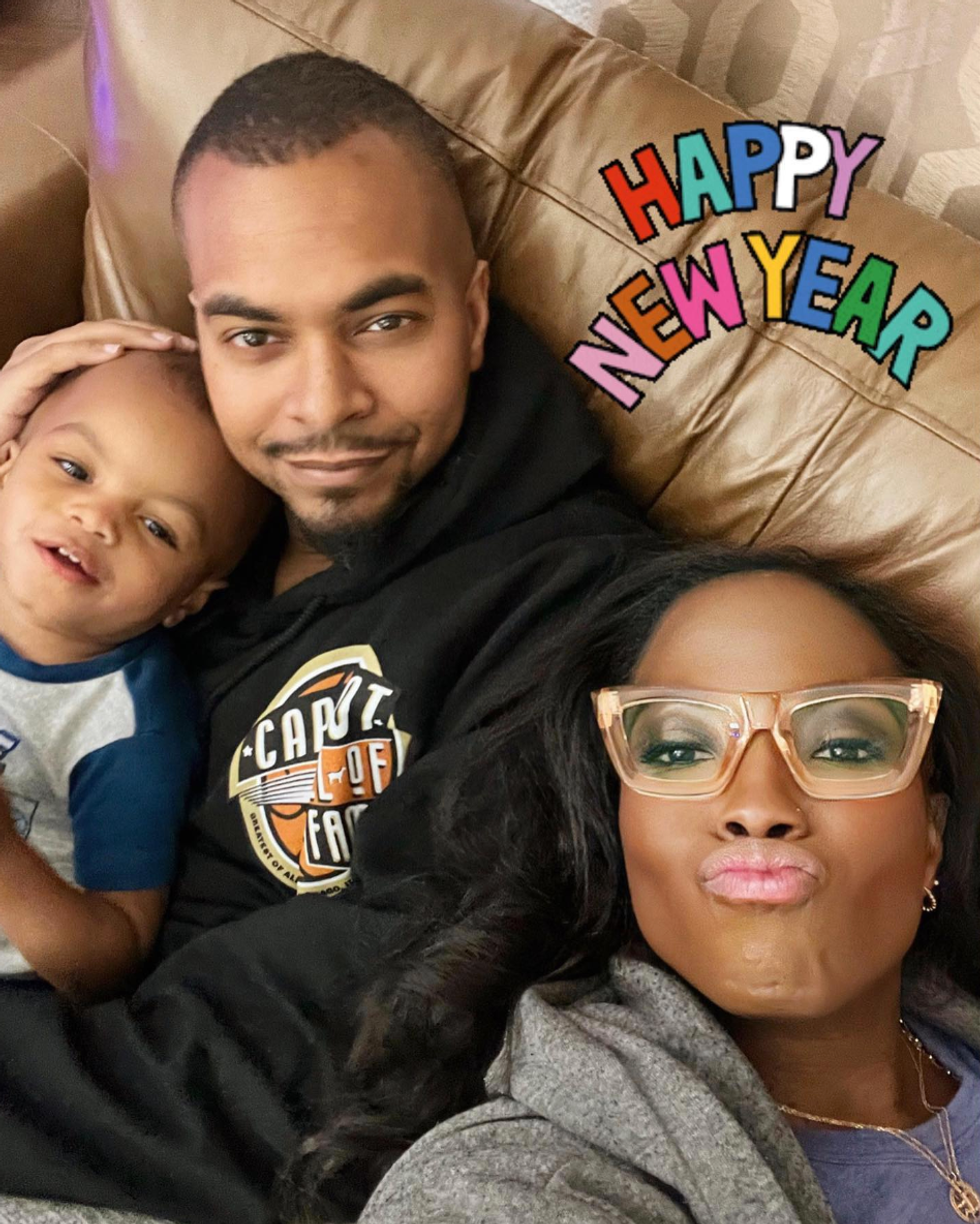
"What helps me push through each day is the motivation to continue by thinking about my son. All my efforts, though exhausting, are to create a wonderful life for him."
Ezinne Okoro, Global Chief Inclusion, Equity, & Diversity Officer at Wunderman Thompson,
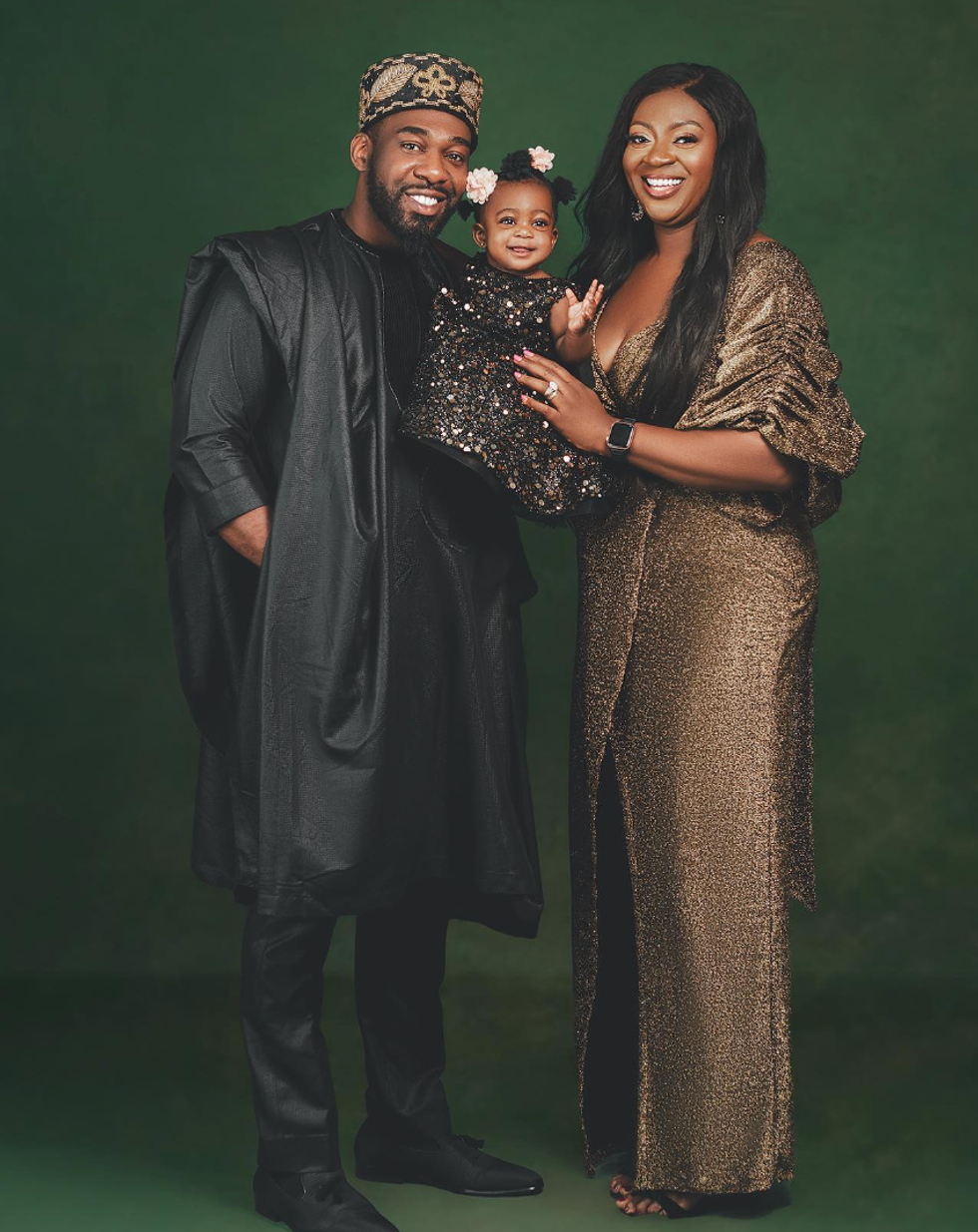
"The advice I received that I’ll pass on is, you will continue to figure it out and find your rhythm as your child grows into new stages. Trust your nurturing intuition, parent on your terms, and listen to your child."
Jovian Zayne, CEO of The OnPurpose Movement
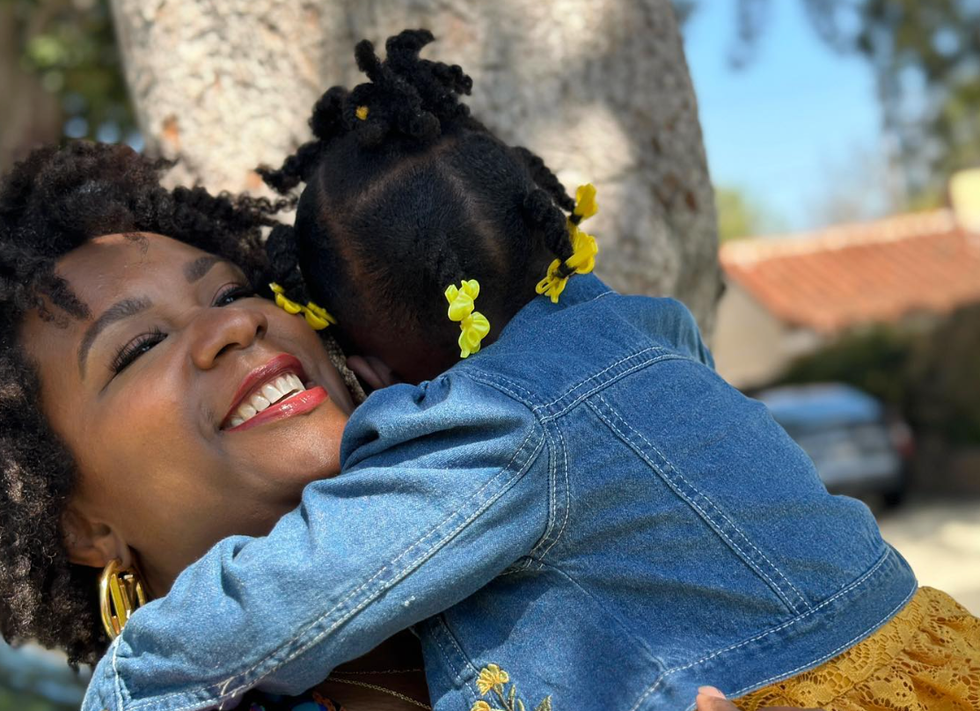
"I live by the personal mantra: 'You can’t be your best self by yourself.' My life feels more balanced when I offer the help I can give and ask for the help I need. This might mean outsourcing housecleaning for my home, or hiring additional project management support for my business."
Simona Noce Wright, Co-Founder of District Motherhued and The Momference

"Each season of motherhood (depending on age, grade, workload) requires a different rhythm. With that said, be open to learning, to change, and understand that what worked for one season may not work the other...and that's okay."
Janaye Ingram, Director of Community Partner Programs and Engagement at Airbnb
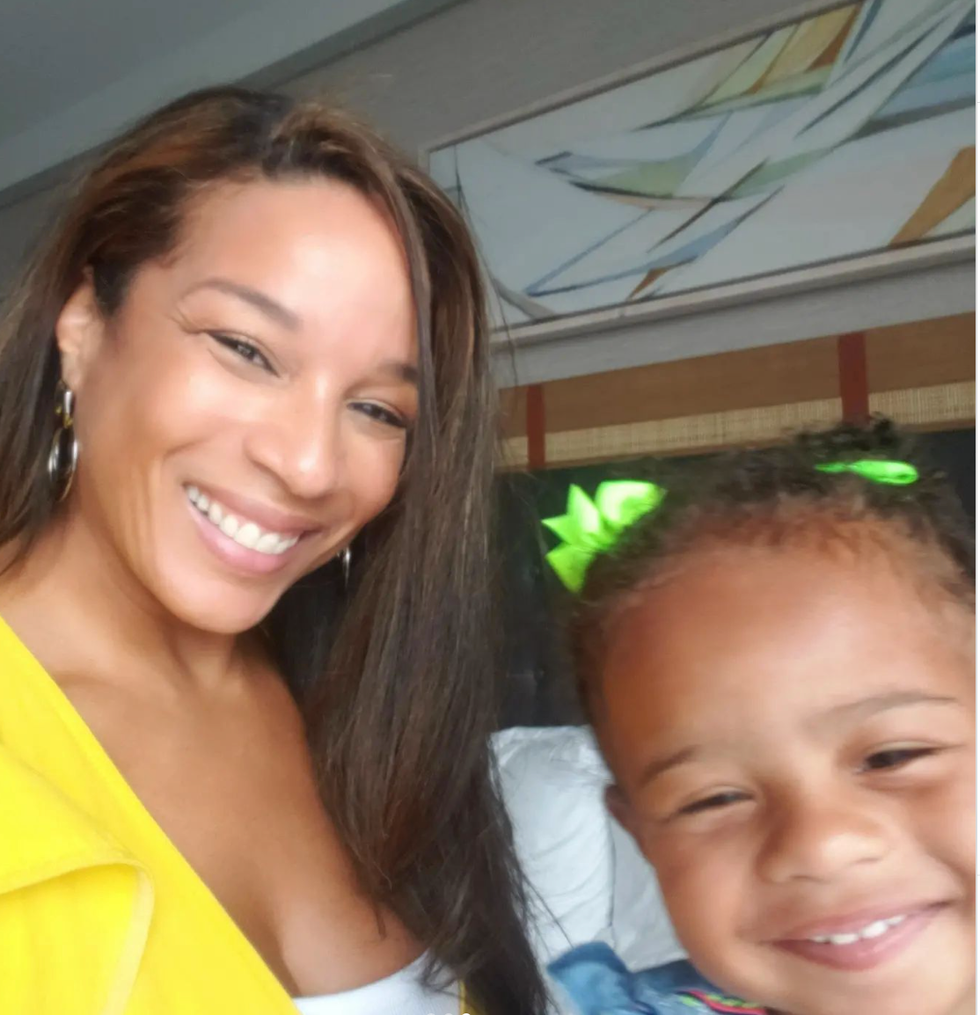
"My daughter's smile and sweet spirit help me to feel gratitude when I'm overwhelmed. I want her to see a woman who doesn't quit when things get hard."
Codie Elaine Oliver, CEO & Founder of Black Love
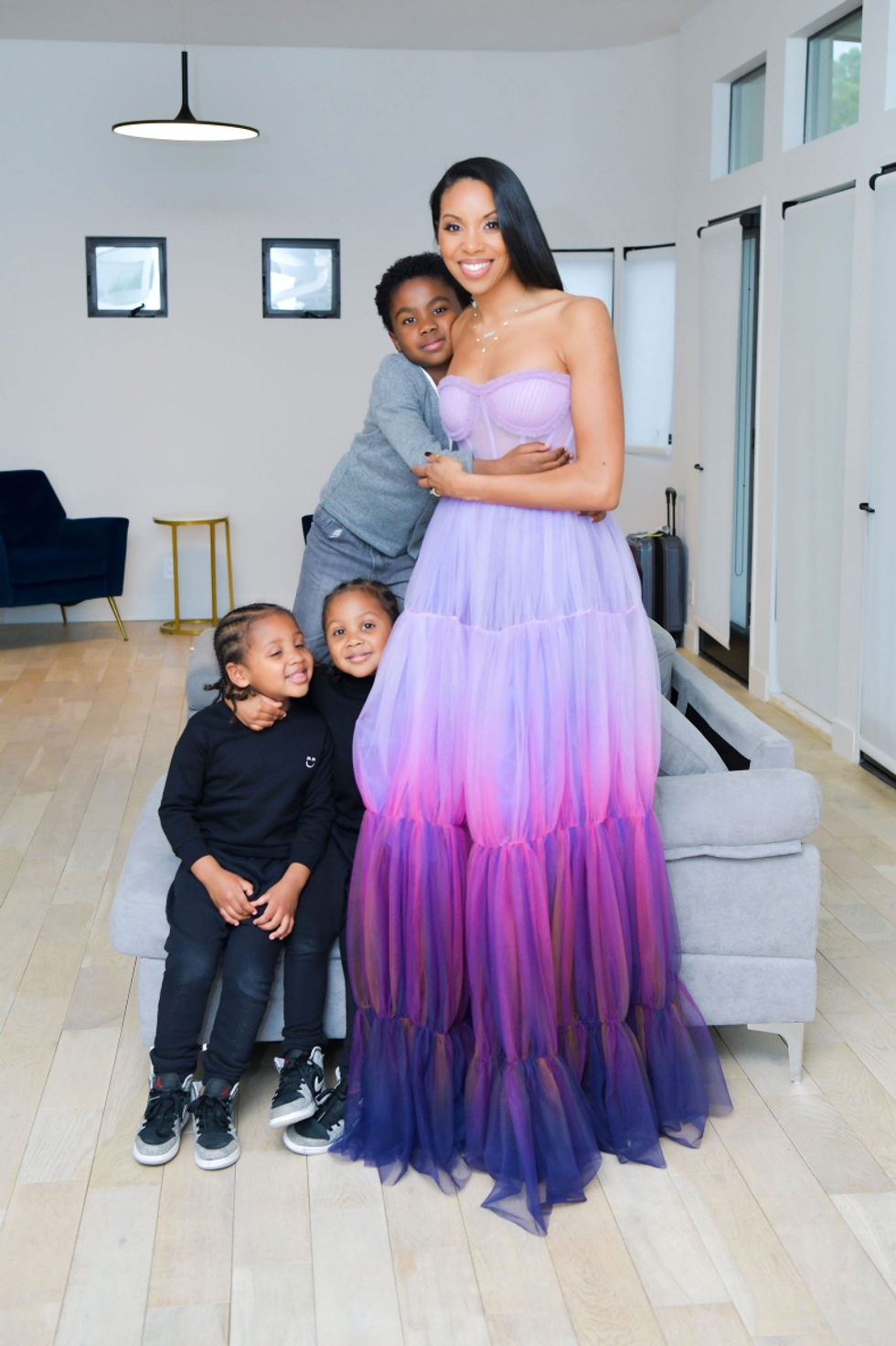
"I try to listen to my body and simply take a break. With 3 kids and a business with 10+ team members, I often feel overwhelmed. I remind myself that I deserve grace for everything I'm juggling, I take a walk or have a snack or even head home to see my kids, and then I get back to whatever I need to get done."
Jewel Burks Solomon, Managing Partner at Collab Capital

"Get comfortable with the word ‘no’. Be very clear about your non-negotiables and communicate them to those around you."
Julee Wilson, Executive Director at BeautyUnited and Beauty Editor-at-Large at Cosmopolitan
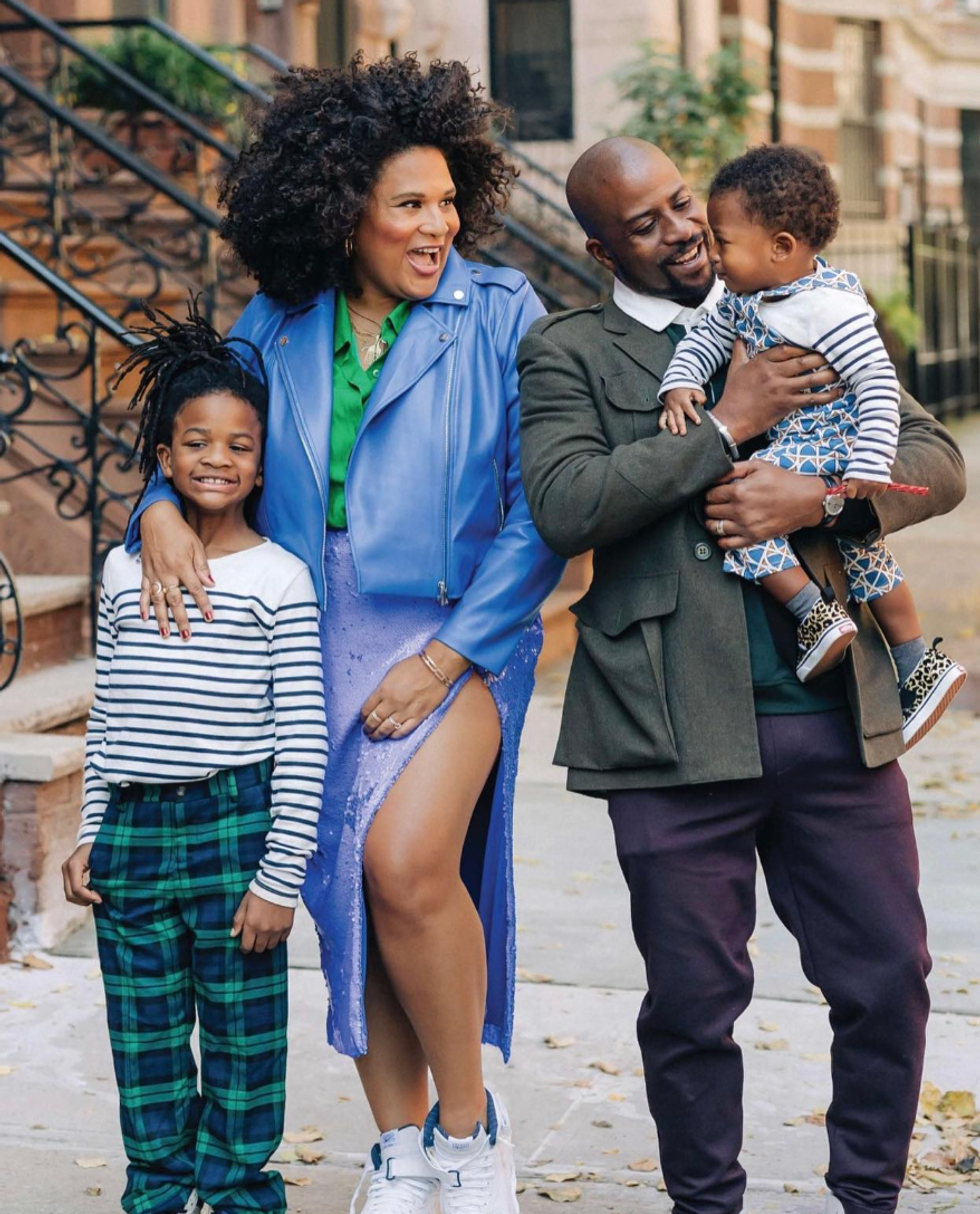
"Understand you can’t do it alone — and that’s ok. Relinquish the need to control everything. Create a village and lean on them."
Salwa Benyaich, Director Of Pricing and Planning at Premion

"Most days I really try to shut my computer off by 6 pm; there are always exceptions of course when it comes to big deals or larger projects but having this as a baseline allows me to be much more present with my kids. I love the fact that I can either help with homework or be the designated driver to at least one afterschool activity. Work can be draining but there is nothing more emotionally draining than when you feel as though you are missing out on moments with your kids."
Brooke Ellis, Head of Global Marketing & Product Launches at Amazon Music

My calendar, prayer, pilates class at Forma, a good playlist, and oatmilk lattes all help get me through any day.
Courtney Beauzile, Global Director of Client and Business Development at Shearman & Sterling

My husband is a partner who steps in when I just can’t. My mom and my MIL come through whenever and however I need. My kids have many uncles and aunts and they will lend an ear, go over homework, teach life lessons, be a presence or a prayer warrior depending on the day.
Robin Snipes, Chief of Staff at Meta

"Enjoy the time you have to yourself because once kids come those times will be few and far between."
Monique Bivens, CEO & Founder at Brazilian Babes LLC.
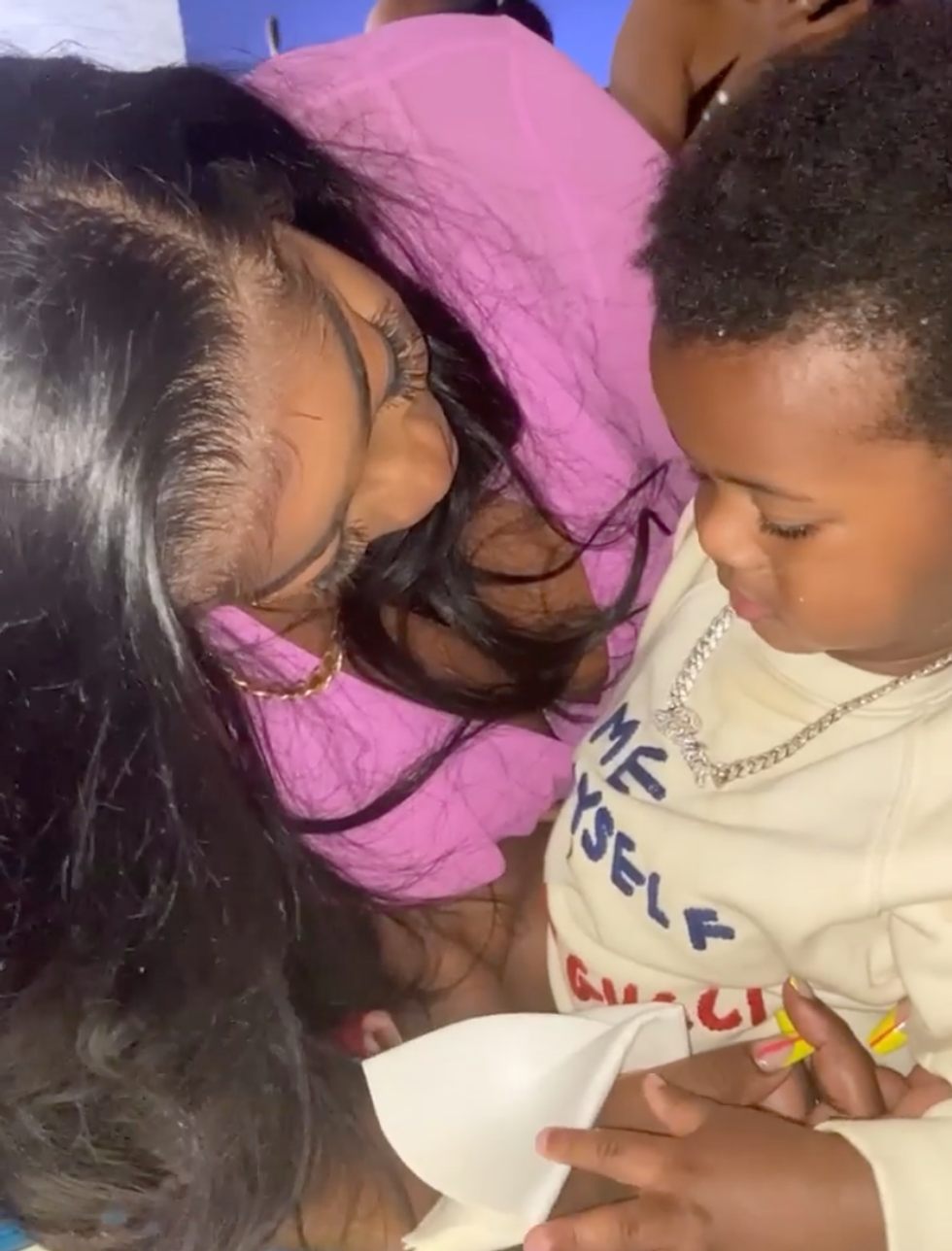
"For new moms, it is very important that you get back into a habit or routine of something you use to do before you were pregnant. Consider the actives and things that give you the most joy and make the time to do them."
Let’s make things inbox official! Sign up for the xoNecole newsletter for daily love, wellness, career, and exclusive content delivered straight to your inbox.
Featured image by Westend61/Getty Images
- 20 Inspirational Quotes That'll Motivate TF Out Of You ›
- Tracee Ellis Ross Breaks Down What ‘Wander, Ponder, And Be’ Means To Her ›
- 20 Quotes About Black Love That Will Make You A True Love Believer ›
- 14 Quotes From Black Feminists To Inspire You To Boss Up ›
- 10 Inspirational Issa Rae Quotes For When You Need Them Most ›
This Is How To Keep 'Holiday Season Stress' From Infecting Your Relationship
Hmph. Maybe it’s just me, but it seems like there is something really weird happening in the fall season air (because winter doesn’t officially begin until December 21) that cuddle season is in full swing while break-up season is as well. In fact, did you know that break-ups are so popular during the holiday season that December 11 is deemed Break-Up Day?
The reasons why relationships shift around this time vary; however, I did both roll my eyes and chuckle when I read that a very popular one is because it’s an easy way to get out of getting one’s significant other a Christmas present. SMDH.
Anyway, I personally think that the less shallow folks out here may contemplate calling things “quits” or they at least distance themselves a bit from their partner (and what I’m referring to is serious relationships) due to all of the stress and strain that oftentimes comes with the holidays whether it be financial, familial, due to their tight schedules or something else.
Listen, I would hate for you and your man to miss the fun and happiness of experiencing this time of year, all because you are so overwhelmed or irritated that you can’t really enjoy it. That’s why I have a few practical tips for how to avoid allowing the typical holiday season stress from INFECTING your relationship.
Manage Your Expectations
 Giphy
GiphyUnmanaged expectations. If there is a main reason why the holiday season tends to be so stress-filled for so many people, I’d bet good money that this is the cause. And when you’re in a long-term relationship, expectations can manifest themselves in all sorts of cryptic and/or unexpected ways. You might have relatives who assume that you are going to be with them for Thanksgiving or Christmas when you have other plans in mind. You might be thinking that you are going to spend one amount for presents while your man is thinking something totally different. When it comes to scheduling, your signals may be crossed.
And you know what? To all of these scenarios, this is where clear and consistent communication come in. Don’t assume anything. Don’t dictate anything either. From now until New Year’s, mutually decide to check in once a week, just to make sure that you are both on the same page as it relates to the holidays and what you both are thinking will come along with it. The less blindsided you both feel, the less stressed out you will be. Trust me on this.
Set (and Keep) a Budget
 Giphy
GiphyOkay, so I read that last year, 36 percent of Americans incurred some type of holiday-related debt. Hmph. Last year, there was still some sense of normalcy in this country, chile, so I can only imagine what finances are gonna look like over the next several weeks. That said, since I don’t know a lot of people who don’t find being broke stressful, make sure that you and your bae set a budget and then stick to it this year — no ifs, ands or buts.
Because really, y’all — it doesn’t make sense to deplete savings and/or max out credit cards for a few days of giggles only to be damn near losing your mind because you don’t know how to make ends meet come Dr. Martin Luther King, Jr. Day.
And by the way, this tip doesn’t just speak to things like food and gifts; I also mean travel. If it doesn’t make a ton of sense (or cents) to be all over the place this year — DON’T BE.
Keep Matthew 5:37 at the Forefront
 Giphy
GiphyIf off the top of your head, you don’t know what Matthew 5:37 says, no worries, here ya go: “But let your ‘Yes’ be ‘Yes,’ and your ‘No,’ ‘No.’ For whatever is more than these is from the evil one.” That verse right there? Oh, it’s a boundaries lifesaver! I say that because do you see “maybe” or “I’ll think about it” in there? Nope. LOL. It says that you should tell people “yes” or “no” and leave it at that — and that complements Anne Lamott’s quote, “’No’ is a complete sentence” impeccably well. Yeah, you’ve got to remember that anything beyond a yes or no to a request is privileged information; you don’t owe anyone details or an explanation.
Besides, if you are really honest with yourself, when someone asks you something and you give a “Umm, let me think about it” kind of reply, more times than not, you already know what your answer is going to be — so why not let you both off of the hook? Give your response. Commit to that. And let everyone (including yourself) get on with their lives and schedules.
I promise you that when it comes to those holiday parties, you are pissing more folks off by not RSVP’ing or doing so and not showing up than just saying, “Thank you but not this year” off the rip.
Remember That Your Personal Space Is Privilege Not a Right
 Giphy
GiphyA friend of mine recently bought a new house and invited me over to come see it. He’s a single man with no children, so as I was taking in all of the space that he had, especially as I walked through his finished basement, I joked about relatives coming to live with him. “Hell no” and “absolutely not” were pretty much his immediate responses as he went on to say that some folks even had the nerve to be offended when he told them that he had no intentions on taking DNA in.
Ain’t it wild how people think that your stuff is their right? And yes, that brings me to my next point. Your home is your sanctuary space. If you want to host folks this year — cool. If not, ALSO COOL. Please don’t let folks (family included) guilt you into how they want you to act or even into what they would do if the shoe was on the other foot. You are not them — and as one of my favorite quotes states, “If two people were exactly alike, one of them would be unnecessary.” (A man by the name Larry Dixon said that.)
Hell, my friends? They know that I am good for sending them random things that they need or even want all throughout the year. Coming over to hang out at my pace, though. Uh-uh. Chalk it up to being a card-carrying member of the ambivert club yet I like keeping my living space personal — and I sleep like a baby, each and every night, for feeling that way.
Always remember that your space, your time, your resources, your energy and shoot, yourself period (including your relationship), are all things that are your own. You get to choose how, when and why you want to share them. The holiday season is certainly no exception.
Cultivate Some “You Two Only” Traditions
 Giphy
GiphyIt’s not uncommon for some couples to hit me up after the holiday season to “detox.” Sometimes it’s due to the financial drama (and sometimes trauma) that they experienced. Sometimes it’s because they allowed their relatives (especially in-laws) to get more into their personal business than they should’ve. More than anything, though, it tends to be because they didn’t get enough quality time together and so ended up feeling “disconnected.”
Please don’t let that happen. Listen, I’m not even a holidays kind of woman and yet, I will absolutely sit myself down with some hot chocolate and chocolate chip cookies to enjoy a Hallmark holiday film or two. Aside from the fact that most of them are lighthearted and sweet, I also like that they usually focus on couples loving on each other amidst all of the holiday beauty and ambiance — which is something that all couples should set aside some time to do.
Maybe it’s a vacation. Maybe it’s a staycation. Or maybe it’s my personal favorite, A SEXCATION. Whether it’s for a few days, the weekend or even overnight — don’t you let the holidays go by without setting aside time for you and your man to celebrate one another. Don’t you dare (check out “Are You Ready To Have Some Very Merry 'Christmas Sex'?”).
GET. SOME. REST.
 Giphy
GiphyI once read that 8 out of 10 people get stressed out over the holidays and 3 out of 10 lose sleep during to it — and when you’re stress-filled and sleep-deprived, that can absolutely lead to hypersensitivity, making mountains out of molehills and even not being in the mood for sex.
Your relationship can’t afford to go through any of this, so definitely make sure to prioritize rest. I don’t care how unrealistic it might seem during this time, sleep should never be seen as a luxury; it will always and forever be a great necessity.
That said, try to get no less than six hours of shut-eye in (check out “6 Fascinating Ways Sex And Sleep Definitely Go Hand In Hand”) and even ask your bae to take a nap with you sometimes (check out “Wanna Have Some Next-Level Sex? Take A Nap, Sis.”). Not only will sleep help to restore your mind, body and spirit but, when it’s with your partner, it’s an act of intimacy that can make you both feel super connected, even in the midst of what might feel like chaos.
___
Holiday season stress is real. Still, never give it the permission or power to throw your relationship off. Put you and your man first and let the holidays be what they are gonna be, chile.
Let’s make things inbox official! Sign up for the xoNecole newsletter for love, wellness, career, and exclusive content delivered straight to your inbox.
Featured image by Shutterstock
Sergio Hudson On Designing With Intention And Who Gets Left Out Of The Industry
Sergio Hudson dreamt big as a young South Carolina boy staring out of the window of his mom’s Volvo driving down the Ridgeway, South Carolina streets. Those dreams led him to design opulent tailoring that’s been worn by Beyoncé, Queen Latifah, former Vice President Kamala Harris and Forever First Lady Michelle Obama, just to name a few.
Those dreams have come full circle in a new way as he recently collaborated with Volvo for a mini capsule collection suitable for chic and stylish moments this fall. The 40-year-old designer follows a long legacy of fashion aficionados who’ve used their innovation to push the automotive industry forward, including Virgil Abloh, Eddie Bauer, Paul Smith and Jeremy Scott.
Using the same material from the interior of the Volvo EX90, Hudson crafted a wool-blend car coat and waistbelt that combine the vehicle’s Scandinavian design with his signature tailoring and intention. The exclusive collection launched on October 20, and each piece is made-to-order by Sergio Hudson Collections.

Courtesy
In October, I traveled to Charleston with a group of journalists to get a firsthand look at Hudson and Volvo’s location. During a fitting, Hudson said his goal is to make “great work that can stand the test of time.”
“People can look back on and say, ‘I remember when Sergio did that collaboration with Volvo,’” he continued. “Thinking about aligning yourself with classic brands that speak to where you want to go. And I think that's what this collaboration kind of means to me and my business.”
Hudson pinpoints his mom as the biggest influence for his designs. This collaboration was no different.
“This particular coat reminded me of the swing coats that my mom used to wear in the early 90s. You know, diva girls in the early 90s had Sandra suits,” he said, referring to Jackée Harry’s character in 227. “My mom wore those and she would have these matching swing coats to go over them. And that's where the initial idea came. This would be around the same time that we had our Volvo. So she would put on her suit, her swing coat, get in that red Volvo, and go to church.”

Courtesy
With this capsule and beyond, Hudson wants to see more staples rotating in and out of closets this fall. He advises fashionistas to build her closet out with essentials to mix and match that aren’t just stylish but also sustainable.
“It's just those special pieces,” he said. “You can wear the same shirt and pants every day and nobody will notice. But if you have a special boot, a special coat, a special bill, a special bag, that kind of speaks to everything that your style stands about, that is something you should focus on.”
These are the same kind of staple pieces that return to our Pinterest boards and TikTok feeds season after season. Fast fashion has never been Hudson’s aim. “I'm trying to create a special pieces that can stand the test of time,” he said in his warm, Southern accent. “I'm only creating those kind of pieces from here on out.”

Courtesy
For Hudson, this collaboration is revolutionary. It’s his first time working with a car company and experimenting outside of his wheelhouse in this way.
“This is a Scandinavian brand, and, you know, it's 70 years old. I'm an African-American boy from South Carolina that has had a brand for 10 years. So I think bridging those two worlds and seeing the similarities was the beauty of this project,” he explained.
Though Hudson and his partner and CEO of Sergio Hudson Collections Inga Beckham have made massive strides in just 10 years, Hudson said the industry is far from where he wants to see it when it comes to Black representation. He pointed to how few Black designers were at this year’s Met Gala despite the theme being Black dandyism.
“The fact that I dressed 18 people speaks to how many of us weren't there,” he said. He implored more of industries, fashion and beyond, to collaborate with Black designers often.
“Allow mentorship. Allow funding. Allow great design to shine through,” he implored. “When it comes to being a designer of African descent, when you can't get the funding that your counterparts have, you can't compete. When you get opportunities like doing a collaboration with Volvo, or you get opportunities to be at the Met Gala, that's putting us on the equal playing field, but really the funding behind it is what we need to take it to that desk level.”
Featured image courtesy



